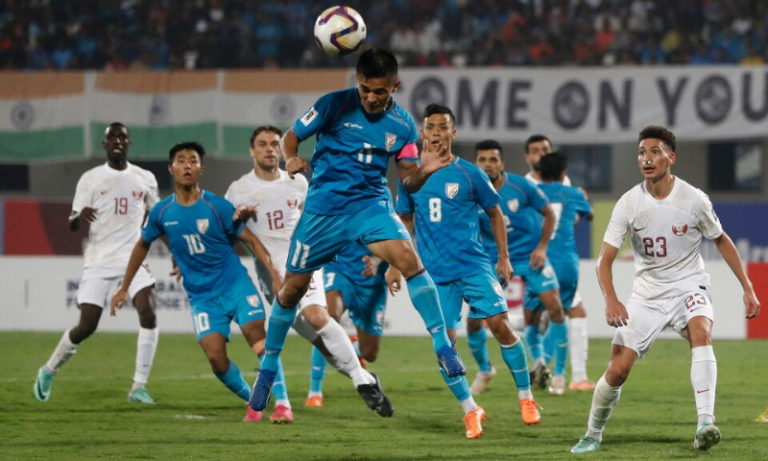Indian football stands at a crossroads once again, with FIFA and the Asian Football Confederation (AFC) warning that the country faces suspension if it fails to adopt a new constitution by October 30. In a joint letter sent to All India Football Federation (AIFF) president Kalyan Chaubey, the world and continental governing bodies expressed “profound concern” over the federation’s continued inability to finalise a long-delayed constitution. The document has been pending before India’s Supreme Court since 2017, leaving the future of the game in limbo.
Also Read: PCB Expresses Concern Over Declining Team Performance
The letter, viewed by AFP, carried a clear warning. “Failure to meet this schedule will leave us with no alternative but to refer the matter to the relevant FIFA decision-making body for consideration and decision,” it stated. FIFA and AFC stressed that the AIFF must treat the matter as binding and act immediately to safeguard its membership rights. Non-compliance would result in suspension, barring India’s national teams and clubs from participating in all international competitions.
This is not unfamiliar territory for Indian football. In August 2022, FIFA imposed a suspension on the AIFF citing “third-party interference” after the Supreme Court appointed a committee of administrators to run the federation. The ban was lifted only days later when FIFA was assured of elections that eventually brought Chaubey to power. However, the current deadlock over the constitution threatens to trigger another crisis, one that could have even deeper consequences for Indian football’s already fragile ecosystem.
At the heart of the uncertainty lies the future of the Indian Super League (ISL), the country’s flagship club competition. Normally staged between September and April, the ISL’s new season has already been delayed, leaving thousands of players, coaches, and support staff in precarious positions. The dispute stems from the AIFF’s rocky relationship with its commercial partner, Football Sports Development Limited (FSDL), which manages the league. Their rights agreement, crucial to the ISL’s existence, is set to expire on December 8 and has yet to be renewed. Without clarity on its continuation, there are growing fears that the ISL could collapse altogether, sending Indian professional football into disarray.
For a sport striving to compete with cricket’s dominance and fighting to carve out a sustainable structure, the timing could not be worse. The AIFF’s failure to present a revival plan for the ISL has further eroded confidence in its governance. Clubs are struggling with financial uncertainty, players remain unsure of their contracts, and sponsors have begun to question the viability of investing in the league.
The crisis also poses a major setback for India’s national teams. With international bans, youth teams, senior squads, and even clubs participating in Asian competitions would be sidelined, cutting players off from vital exposure. For emerging talents hoping to make their mark on the international stage, the suspension could derail entire careers. Moreover, it would damage India’s ambitions of positioning itself as a future host of major football tournaments.
Observers point out that the situation reflects long-standing governance challenges in Indian football. The prolonged delay in adopting a constitution aligned with FIFA statutes has left the AIFF vulnerable to both legal and administrative paralysis. While Chaubey’s election was seen as a fresh start, the lack of progress since then has reignited doubts over whether the federation can deliver the structural reforms demanded by the sport’s global overseers.
For FIFA and AFC, the stakes are clear: Indian football must demonstrate its ability to govern itself independently and transparently, without undue interference or prolonged legal entanglements. For India, however, the consequences go far beyond administration. A second suspension in just three years would not only stall the game’s growth but also erode the fragile trust of fans, sponsors, and stakeholders who have invested hope in football’s rise.
With the October 30 deadline looming, the AIFF faces a decisive moment. Either it resolves the constitutional impasse and secures football’s place on the global stage, or it risks plunging the sport back into isolation, leaving players, clubs, and fans to pay the price for administrative inaction.


